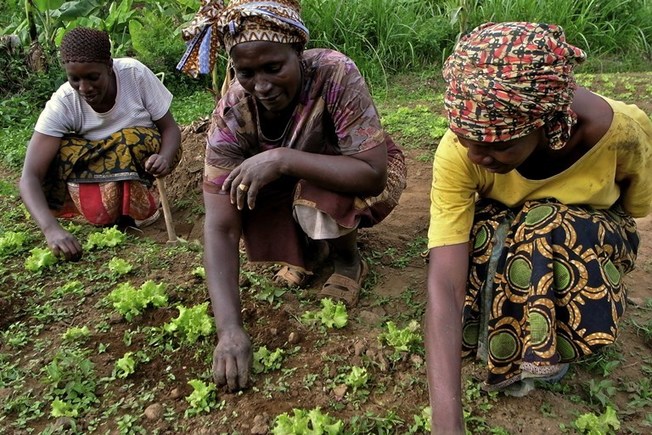Globally, indigenous people and rural communities collectively hold more than half of the world’s land, but they legally own just 10 percent, and even less of it is registered and titled, according to a study published in July 2018 by the World Resources Institute (WRI). In sub-Saharan Africa, where competing governments have over the past decade invited foreign companies — from countries as disparate as Britain and Bangladesh — to invest in land to produce food and biofuels, that challenge is particularly acute.
“Companies … acting in bad faith may take shortcuts which do not respect the rights of communities,” says Laura Notess, a WRI research analyst.
In Tanzania, land is public property held by the president as trustee on behalf of the people. Its registration, however, is often a cumbersome process riddled with corruption and mismanagement, according to Transparency International. Though the law requires companies to obtain land through the Tanzania Investment Centre, an independent regulator, firms in some cases have tried to bribe local leaders to directly lease parcels of land.
“Evidence indicates that during the implementation of large-scale investments, the rights of rural communities over land and natural resources have not been respected,” says Emmanuel Sulle, a researcher at the Institute for Poverty, Land and Agrarian Studies in Cape Town.
The legal framework governing land is so riddled with holes that there’s often no express illegality needed for a dispute to arise. In Nyamitanga, for example, villagers had agreed to hand over 1,500 hectares of land to AGO. The firm, in return, was to build a school and a dispensary and fix a water-supply system, local residents said. But no contract was signed. It turns out, no contract was needed. Verbal approval was enough under the country’s village land law, and AGO took the land. The promises never materialized, and eventually, faced with protests and a project struggling to take off, AGO walked away. Asked, the company has denied any wrongdoing.
But finding ways around laws is no longer just the preserve of big companies in Tanzania. Traditionally, individual land-use rights are awarded through what are known as certificates of customary right of occupancy (CCROs). Loure, who has run a nonprofit called the Ujamaa Community Resource Team since 2003, helped forge partnerships between villagers and local authorities, eventually leading to the issuance of the first CCRO in 2013. Communal registration of land use for communities like the Maasai gives them collective strength and bargaining power in negotiations with any land seeker.
Sourced through Scoop.it from: www.ozy.com



Leave A Comment